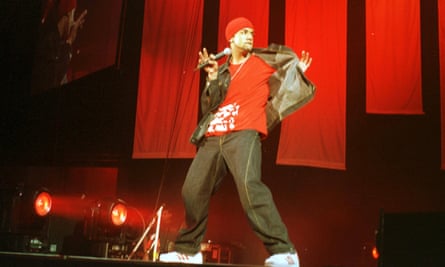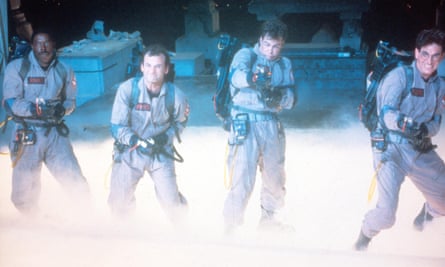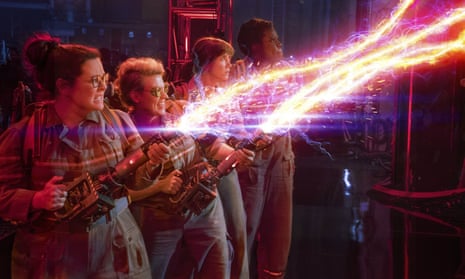As much as we’re living in an age of anything, and not just floating pointlessly through the unpunctuated infinity of time, we’re living in an age of nostalgia. In the last six months alone, Craig David has released two Top 40 singles, pre-production has begun on a trilogy of Tetris movies, Drake has boasted on his double platinum-selling album Views that he’s “made a career off reminiscing”, and Absolutely Fabulous has proven a runaway success at the UK box office.
Scores of articles have been written to bemoan this upsurge of nostalgia, and even they seem built on a nostalgic premise: “Remember when our culture wasn’t hamstrung by a tendency towards wistful self-reflection? Man, those were the days.”
It’s not hard to imagine why ours might be a uniquely nostalgic era. The internet has concentrated our perception of what’s new, but it’s also given us countless ways to revisit the old. No longer is nostalgia something that catches us by surprise. Now it’s something we consciously seek out. Next time you’re out with a group of friends, try vaguely describing a cartoon from your childhood featuring a girl in a beret and her magic pencil. I guarantee you someone will be playing the Penny Crayon theme tune out of their phone before the evening’s up. Our pop-cultural past is now just a Google search away, and that immediacy has turned nostalgia into the dominant cultural force.
As all but the most devout of Carthusian monks will by now be aware, a certain section of the internet has been up in arms lately because the forthcoming reboot of Ghostbusters, though directed by a man, stars four women who are not men. It therefore represents not just a flagrant act of reverse sexism but an existential threat to the original movie, copies of which are set to disappear in a puff of misandrist smoke once the new film is released next week.
YouTuber James Rolfe made waves by declaring he wouldn’t be seeing the reboot, not because of its female cast you understand but because “it is piggy-backing on the name” of the 1984 original. This is a patently ridiculous argument. If there was ever a time when Ghostbusters — one of the most heavily merchandised films ever made — could be said to be untarnished by so-called piggy-backing, that period lasted for all of two years until 1986 saw the release of not one but two animated shows keen to cash in on the film’s success. Three years after that, a borderline unwatchable sequel bulldozed any remaining notion of franchise infallibility. And yet Rolfe’s argument resonated with tens of thousands of viewers, such is the cultural cachet of nostalgia.
Having recently rewatched the original film, I can vouch for the fuzzy feeling it generates among those who first saw it as children. I can also vouch for its imperfections. Two elements in particular have not aged well: a needle-drop soundtrack that blusters throughout like a kazoo at the orchestra, and Ernie Hudson’s absent-from-the-all-white-marketing-materials fourth ghostbuster Winston Zeddemore, who’s given so little screen time that the film’s end credits can be forgiven for misspelling his name. There’s also the infamous scene in which a “sexy” ghost gives Dan Aykroyd a blowjob. I can’t bring myself to describe it in detail, but suffice to say it might explain how a generation of straight men got it into their heads that the franchise was made for them and them alone.

The net result is a film that gratifies with one hand and unnerves with the other. In other words, it’s the archetypal nostalgic object, offering a portal to a cherished realm that’s not quite how you remember it. Last year, a writer for the pop-culture site Den Of Geek revisited an old episode of Thomas The Tank Engine And Friends, and was horrified to discover a grotesque morality play in which vainglorious loco Henry is bricked into a tunnel by the Fat Controller for the mortal sin of mild self-importance. An article detailing this bizarre narrative arc was widely shared by those old enough to remember the show, but not old enough to have fully digested its psychological monstrousness first time around.
Beneath the absurdity of its subject matter, the piece distilled a simple truth: nostalgia is bittersweet. For some, it’s tempting to overlook the Fat Controller’s cruelty and declare that the golden era of children’s television really is the one that happens to coincide with your own childhood. One of my all-time favourite YouTube videos, for example, sees a self-proclaimed rationalist named Paul Joseph Watson arguing (and you may want to sit down for this) that popular music was better in his day. “This isn’t a matter of taste or subjective opinion”, he explains, “it’s an objectively provable fact”. Going on to cite a number of scientific studies, he makes a supposedly empirical case against Beyoncé, Lady Gaga and a range of other modern artists he happens not to like.
That’s the simple approach.It’s a lot more difficult, but infinitely more rewarding, to embrace the dichotomous nature of nostalgia, and learn from its contradictions. Video game critic Anita Sarkeesian is just one example. She routinely enrages a certain subset of gamers with straightforward feminist analyses of beloved classics such as Ms Pac-Man and The Legend Of Zelda, while reminding deaf ears that “it is possible, and even necessary, to simultaneously enjoy media while also being critical of its more problematic or pernicious aspects”.

Necessary indeed. If re-examining the movies and music we grew up with can sometimes feel like looking back at embarrassing photos of our teenage selves, then the process at least forces us to reckon with our own fallibility, and that of others. If you once considered Duckie from Pretty In Pink a viable love interest, as opposed to a psychopathic timebomb, then who knows what you’re wrong about now. And who knows what the #NotMyGhostbusters crowd may one day come to realise about their own firmly held beliefs.
Nostalgia is, in a literal sense, backward-looking, but it can be a force for positive change. The standout episode of Aziz Ansari’s Netflix show Master Of None opened with a fast-cut montage of beloved movies and TV shows, and more precisely, the worryingly commonplace moments within them in which white actors took it upon themselves to play Indians. This was nostalgia on overdrive, a turbo-boost of queasy familiarity that powered the show through one of last year’s best half hours of TV, a forthright but nuanced treatise on the racial politics of the entertainment industry.
Ansari was inspired to write it after rewatching the 1988 comedy Short Circuit 2, a film he admired for casting an Indian guy in the lead role. Except, as he soon discovered, “the Indian guy was a white guy”, Fisher Stevens. Others might have written off the film at that point, or else defended Stevens’s casting as a symptom of a less enlightened era. Ansari instead embraced his mixed feelings, and channelled them into constructive criticism. I can’t imagine a more effective way to move pop culture forward. After all, those who cannot remember the flaws of the last two Spider-Man reboots are doomed to repeat them. And those who turn a blind eye to Dan Akyroyd’s spectral seduction may never see the need for a female-fronted Ghostbusters.
Every generation produces a handful of singular voices whose work seems immaculately conceived, owing little or nothing to those artists who came before them. But all comedians can’t be Andy Kaufman, all pop stars can’t be Kate Bush, and nor should they be. Culture is a collective effort, as together we take one step back into nostalgia, then two steps forward into something new. If that means finding common ground with the Ms Pac-Man apologists, then so be it. The world of nostalgia is full of uneasy bedfellows.

Just ask the bright sparks behind PC Music, the London label specialising in a strain of pop that sounds to my ears like Daphne & Celeste played at double speed, only good. The label’s acts all have names like Hannah Diamond and easyFun, and insist on doing interviews in character, maintaining the demeanour of empty-headed industry sock puppets. Rather than critique the vacuity of 90s chart pop from a position of contempt though, they thread their criticisms through an honest, affectionate tribute.
It’s a difficult balance to strike, but get it right and the effect is uniquely potent. Take last year’s hit slasher movie It Follows, which brought suburban dread into the 21st century despite paying direct homage to Carpenter and Craven, or the Avalanches’ new album Wildflower, which resurrects everything from Queens Of The Stone Age to The Sound Of Music but still sounds unlike anything else. Or even last year’s Star Wars reboot, which stoked and subverted the expectations of its audience in equal measure. These creations all recognise what so many others fail to understand: that nostalgia is an exercise in cognitive dissonance, a burst of pleasure that’s all the more intoxicating for the unease that comes with it. Like a blowjob from a ghost, perhaps.
Ghostbusters is in selected cinemas from Monday 11 July.

Comments (…)
Sign in or create your Guardian account to join the discussion